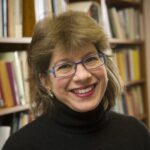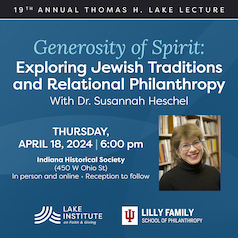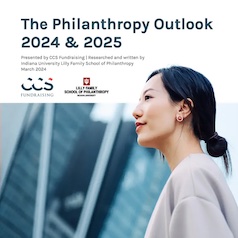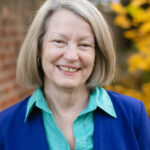Philanthropy and Dignity
Philanthropy and Dignity
As we eagerly anticipate our 19th Annual Thomas H. Lake Lecture, we are pleased to introduce you to our guest lecturer, Dr. Susannah Heschel. In this Q&A, Dr. Heschel shares a bit of her background and reflections on generosity.
As a scholar of Jewish studies, what led you to pursue research with an inter-religious focus across both Christianity and Islam?
My interest in studying religion stems from my exposure to the Civil Rights Movement during my childhood. My father, Rabbi Abraham Joshua Heschel, was involved and had a friendship with Dr. Martin Luther King, Jr., and other Civil Rights leaders whom I was fortunate to meet and hear speak many times. Dr. King and my father made me fall in love with the Bible, and a seminar in Hebrew exegesis during my freshman year of college was a euphoric experience for me.
Yet I also felt that biblical scholarship was asking the wrong questions and failed to understand the beauty and inspirational quality of the Bible. My work as a scholar has been to excavate the history of biblical scholarship – and scholarship on religion more broadly. That has led me to study 19th century German thought, where scholarship on the Bible and on Islam took shape. Strikingly, the field of Islamic Studies began with a doctoral dissertation by a Jewish philologist, Abraham Geiger, who also wrote important studies of Second Temple Judaism and the origins of Christianity. Understanding how our thinking about religion has taken shape is the focus of my research.
You’ve noted the essential nature of relationships when developing a generosity of spirit. Could you share more how a posture of relationship is essential to philanthropy?
To me, philanthropy begins with an understanding of human dignity. In studying the classical rabbinic texts about human dignity, I found that our dignity is created by conveying dignity to others. Philanthropy is precisely that: in generosity toward others, we recognize the dignity of our fellow human beings and create the dignity of our own lives. That is the heart of our relationship with one another. And it is also a lesson that Dr. King and my father both emphasized.
From your own perspective, what are you most curious about when it comes to reflecting upon generosity?
Being generous toward others gives us a sense of profound gratification, a feeling that elevates our souls. To achieve such elevation requires the relationship we create with others, a relationship that may be face to face or may be anonymous, but creates the possibility for others to flourish. In their flourishing, our hearts and our very lives are exalted.
How do you think generosity contributes to a healthy society?
Love without justice is pointless and justice without love leaves us alienated from one another. Generosity is love in the form of deeds.
And how does religious diversity contribute to a healthy society? Are there overlapping or distinctive values?
The presence of religious beliefs other than my own stimulate new ways of expressing my own faith. We have precedents: the rise of Islam in late antiquity stimulated Jewish thinkers to develop philosophical, rational interpretations of Judaism, just as the Marian piety of Christians in thirteenth-century Spain inspired Jewish understandings of the Shekhinah, the divine presence, as a female aspect of God.
What is something that you watched, heard, or read that has inspired you in the last few months?
I have just concluded a two-month research fellowship in Hamburg, Germany, at the Maimonides Institute. Walking to the Institute every day from my apartment, I passed numerous “Stolpersteine,” memorials to Jewish families who had been deported and murdered by the Nazis. Their names and dates of death were written in the small stones in front of the homes where they had lived, and I read of young and old, often families, including babies and young children sent to die in Riga, Minsk, and Auschwitz. I spent my days in my office at the Institute, my heart lifted by colleagues working on aspects of Jewish thought, most of whom were not Jewish. While the antisemitism of the Third Reich has yet to be fully extinguished, I was inspired that so many scholars, young and old, Jewish and Christian, were devoting their lives to understanding Judaism. Their affirmation gave me hope and reminded me of the Hebrew prophets’ insistence that evil is never the climax of history.
 Susannah Heschel is the Eli M. Black Distinguished Professor and chair of the Jewish Studies Program at Dartmouth College. Her scholarship focuses on the history of Jewish and Protestant religious thought in Germany during the nineteenth and twentieth centuries, and she has brought post-colonial theory and feminist theory to her analyses. She is the author of Abraham Geiger and the Jewish Jesus; The Aryan Jesus: Christian Theologians and the Bible in Nazi Germany; and Jüdischer Islam: Islam und jüdisch-deutsche Selbstbestimmung, as well as several edited volumes, including Insider/Outsider: American Jews and Multiculturalism and Betrayal: German Churches and the Holocaust. Forthcoming this year are a monograph written with Sarah Imhoff, Jewish Studies and the Woman Question, and a co-edited volume, New Paths: Essays in Honor of Professor Elliot Wolfson, with Glenn Dynner and Shaul Magid. She is a Guggenheim Fellow and the recipient of five honorary doctorates from universities in the United States, Canada, Germany, and Switzerland. She has held fellowships from the Ford Foundation and the Carnegie Foundation, and fellowships at the National Humanities Center, the Maimonides Institute in Hamburg, and the Wissenschaftskolleg in Berlin.
Susannah Heschel is the Eli M. Black Distinguished Professor and chair of the Jewish Studies Program at Dartmouth College. Her scholarship focuses on the history of Jewish and Protestant religious thought in Germany during the nineteenth and twentieth centuries, and she has brought post-colonial theory and feminist theory to her analyses. She is the author of Abraham Geiger and the Jewish Jesus; The Aryan Jesus: Christian Theologians and the Bible in Nazi Germany; and Jüdischer Islam: Islam und jüdisch-deutsche Selbstbestimmung, as well as several edited volumes, including Insider/Outsider: American Jews and Multiculturalism and Betrayal: German Churches and the Holocaust. Forthcoming this year are a monograph written with Sarah Imhoff, Jewish Studies and the Woman Question, and a co-edited volume, New Paths: Essays in Honor of Professor Elliot Wolfson, with Glenn Dynner and Shaul Magid. She is a Guggenheim Fellow and the recipient of five honorary doctorates from universities in the United States, Canada, Germany, and Switzerland. She has held fellowships from the Ford Foundation and the Carnegie Foundation, and fellowships at the National Humanities Center, the Maimonides Institute in Hamburg, and the Wissenschaftskolleg in Berlin.
Expanded Perspective: At the Intersection
If you travel to the upper West Side neighborhood of Morningside Heights in New York City and stand at the intersection of 122nd Street and Broadway, you will see the red bricks of Jewish Theological Seminary on the northeast corner and the grey stones of Union Theological Seminary on the southeast corner. And, if you stay a few minutes, you will hear the noisy sound of the subway roaring up through the middle of the intersection, as it breaks ground to head north on elevated tracks.
Susannah Heschel and I grew up as faculty kids around that noisy intersection, in the equally noisy decade of the 1960s—she at Jewish Theological Seminary, and me diagonally across the street at Union. Alas, our childhood paths never crossed, to my knowledge (although I do remember attending seders at JTS with my family, mostly for the amazing candy the seminary president handed out). But we were both nurtured by the example of serious, faithful people, who were seeking to discern what their faith called them to do in a tumultuous time marked by injustice, war, cultural conflict, and social change.
My own parents, Robert and Katharine Lynn, were such people to me. At the heart of their way of being was a commitment to the dignity of others and a generosity of spirit, including toward people who stood on the opposite side of the very hot issues (and very real barricades) of the time.
Years later, what I remember most about that noisy era is not which side people were on, but whether they were generous toward those with whom they disagreed—whether they treated them with dignity. For this, as Heschel so poignantly notes, is precisely the definition of philanthropy. “In generosity toward others, we recognize the dignity of our fellow human beings and create the dignity of our own lives.”
Register for the Lake Lecture
 At its core, philanthropy is about relationships, but in our increasingly polarized and disconnected world, how do we form these relationships and develop a generosity of spirit?
At its core, philanthropy is about relationships, but in our increasingly polarized and disconnected world, how do we form these relationships and develop a generosity of spirit?
Join us for 19th Annual Thomas H. Lake Lecture with Dr. Susannah Heschel, the Eli M. Black Distinguished Professor and chair of the Jewish Studies Program at Dartmouth College. Dr. Heschel will discuss the ways in which religion broadly, and Jewish tradition specifically, can help us better practice philanthropy as the love of humanity.
This event is free and open to the public. Attend in person at the Indiana Historical Society (450 W Ohio St Indianapolis, IN) or online.
The Philanthropy Outlook 2024 & 2025
 This publication, researched and written by the IU Lilly Family School of Philanthropy, forecasts the giving environment of the next few years, focusing on the notable trends nonprofit practitioners will likely see in the space. In addition to exploring the economic variables impacting philanthropy, this data-driven report projects total giving and giving by all four donor sources, including households, foundations, estates, and corporations.
This publication, researched and written by the IU Lilly Family School of Philanthropy, forecasts the giving environment of the next few years, focusing on the notable trends nonprofit practitioners will likely see in the space. In addition to exploring the economic variables impacting philanthropy, this data-driven report projects total giving and giving by all four donor sources, including households, foundations, estates, and corporations.
Most notably, the study found that charitable giving is expected to grow in 2024 and 2025—both overall and for each source:
- Total charitable giving is expected to rise above the historical 10-year, 25-year, and 40-year annualized average rates of growth in both 2024 and 2025.
- Giving by households is predicted to grow but will trail the rate of growth for total giving.
- Giving by foundations is expected to experience strong growth, outpacing growth rates for total giving in 2024 and 2025.
- Giving by estates is anticipated to experience stronger growth in 2025, rising above the historical 10-year, 25-year, and 40-year annualized average rates of growth.
- Giving by corporations is also projected to grow but will lag historic rates of growth for this sector.
Subscribe
Insights is a bi-weekly e-newsletter for the religious community and fundraisers of faith-based organizations that provides:
- Reflections on important developments in the field of faith and giving
- Recommended books, studies and articles
- Upcoming Lake Institute events

